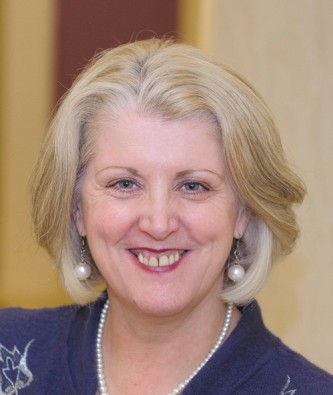The government’s response to a House of Commons Business, Innovation and Skills Select Committee inquiry into adult literacy and numeracy has been welcomed as recognising the “urgency of the situation”.
David Hughes, chief executive of the National Institute of Adult Continuing Education (Niace), was among the first comment on the Department for Business, Innovation and Skills’s (BIS) report and video (below) response to the committee, which called for a “high-profile campaign to tackle the alarmingly low levels of adult literacy and numeracy in England,” among other things.
The committee, which issued its findings in September, also wanted to see greater co-operation across several government departments, a review of funding and a high profile national campaign. Further, its MP members rejected GCSEs as the only qualification by which attainment in numeracy and literacy should be judged.
The BIS response accepts many of the committee’s recommendations, and claims the government has responded to the skills gap in a number of ways. It refers to the establishment of the Behavioural Research Centre for Adult Skills and Knowledge (ASK) and to planned BIS-led research over the next two years, coupled with the establishment of the Vocational Skills Research Centre.
But it rejected national awareness-raising campaign. “We do not consider that these, on their own, were of sufficient value to warrant what would be a very significant Government investment,” the response report said.
It added: “At this time any commitment of Government funding in communications and marketing activity over £100,000 would still be subject to agreement by the Cabinet Office.”
It also said the government would “consider” a cross-government strategy for raising adult literacy and numeracy levels.

David Hughes, chief executive of the National Institute of Adult Continuing Education, said: “I’m pleased the government shares the committee’s appreciation of the urgency of the situation.”
He added: “We have been saying for some time that there needs to be a more concerted cross-government (and cross-party) approach to address the longstanding and persistent literacy and numeracy skills of the nation.
“It is therefore very encouraging to see the acknowledgement for developing a cross-government strategy for raising adult literacy and numeracy levels. I would like to see a new strategy led by BIS and supported by the departments for education, work and pensions, communities and local government, and health.”
The response report focuses in part on improvements and reforms to qualifications such as GCSEs and Functional Skills, and to a review by the Education and Training Foundation (ETF) commissioned by the government last month. It also agrees with the committee’s view that “no learner should be let down by poor quality provision”, and claims to be combating this with “significant reforms”.

Association of Employment and Learning Providers chief executive Stewart Segal said: “It is encouraging that the government now accepts that the goal is to ensure that we ‘create a culture of aspiration and expectation that achievement of English and maths at level two is the norm’.
“The response also recognises the need to retain flexibility of delivery and we pleased that the inclusion of English and maths is an important part of the apprenticeship and traineeship programmes using functional skills qualifications.”
Association of Colleges chief executive Martin Doel said: “We are pleased that adult numeracy and literacy continue to be high on the Government’s agenda and that they are supportive of local-level campaigns to ensure that more people know how to seek out training.

“Colleges already have close links in their local communities and are well-placed to support as many adults and unemployed people as possible in improving their maths and English skills.
“The government is right to point out that GCSE level and style of study is not always appropriate for everyone. That’s why our manifesto calls for new English and maths qualifications to be developed to allow 16 to 19-year-olds and adults to gain the skills that businesses need.”
Responding to the committee’s concerns about numeracy being seen as a “poor relation” to numeracy, the government report draws attention to the introduction of the new national curriculum in schools from 2014 which “sets expectations matching those in the highest-performing education jurisdictions in the world”.
But it rejected a recommendation that the government reverse its decision to cut £2.5m from the Unionlearn budget, claiming the savings are “appropriate”, and another which called for prison libraries to be open at weekends.
The report concludes: “Support for English and maths continues to be a high priority for the government. We will continue to invest in this area and to work with the FE sector and others to identify how our investment can make the greatest difference for the individuals it is designed to serve.”

Dr Lynne Sedgmore, executive director of the 157 Group, said: “The government response emphasises yet again the importance placed on literacy and numeracy skills, and it is especially pleasing to see the ASK team from the Behavioural Insights Unit turning to the excellent practice in Colleges, among them 157 Group members Stoke and Leicester, to find out what really works. This is a truly practice-led approach to policy formulation and we hope to see much more of it in the future.”
Committee chair Adrian Bailey said: “We are pleased that many of our recommendations have been accepted by the government, and that there is a genuine move towards improving adult literacy numeracy levels.
“While we are disappointed that some of our recommendations have not been accepted, such as ensuring that prison libraries are open over the weekends, we are pleased with the general positive response, and look forward to overseeing the government’s work on improving adult literacy and numeracy, over the coming months.”









Functional Skills in literacy and numeracy are hugely popular for both unemployed and employed adults. We could easily deliver twice our volume of provision and, at 97% success rates and high praise by Ofsted, we are well placed to do so. However, four growth cases from TQ for this provision were declined in 2013/14 and, as our growth case for Q1 in 2014/15 for apprenticeships had only limited success and does not meet demand, we will be moving much needed funding across from Functional Skills to Apprenticeships. Our experience shows that there is not sufficient funding to meet the need to bring all adult learners up to Level 2 in literacy and numeracy.
I whole heartedly agree that there needs to be a concerted effort to increase adult numeracy and literacy skills. As a director of a growing training provider I see adult learners who would think their literacy or numeracy skills are adequate, score entry 2 and 3 scores on initial assessments. Getting them through functional skill qualifications at level 2 is a huge task that we are achieving but funding rates for adults are very low so there will need to be a review of rates to incentivise providers to engage with employers and learners alike to support them with increasing numeracy and literacy skills with their staff who will potentially not want to admit that their skills are below par.
providers delivering apprenticeships are ideally placed to engage with employers to support this but it will require funding that actually allows for genuine and real teaching and learning to take place to increase these essential skills.